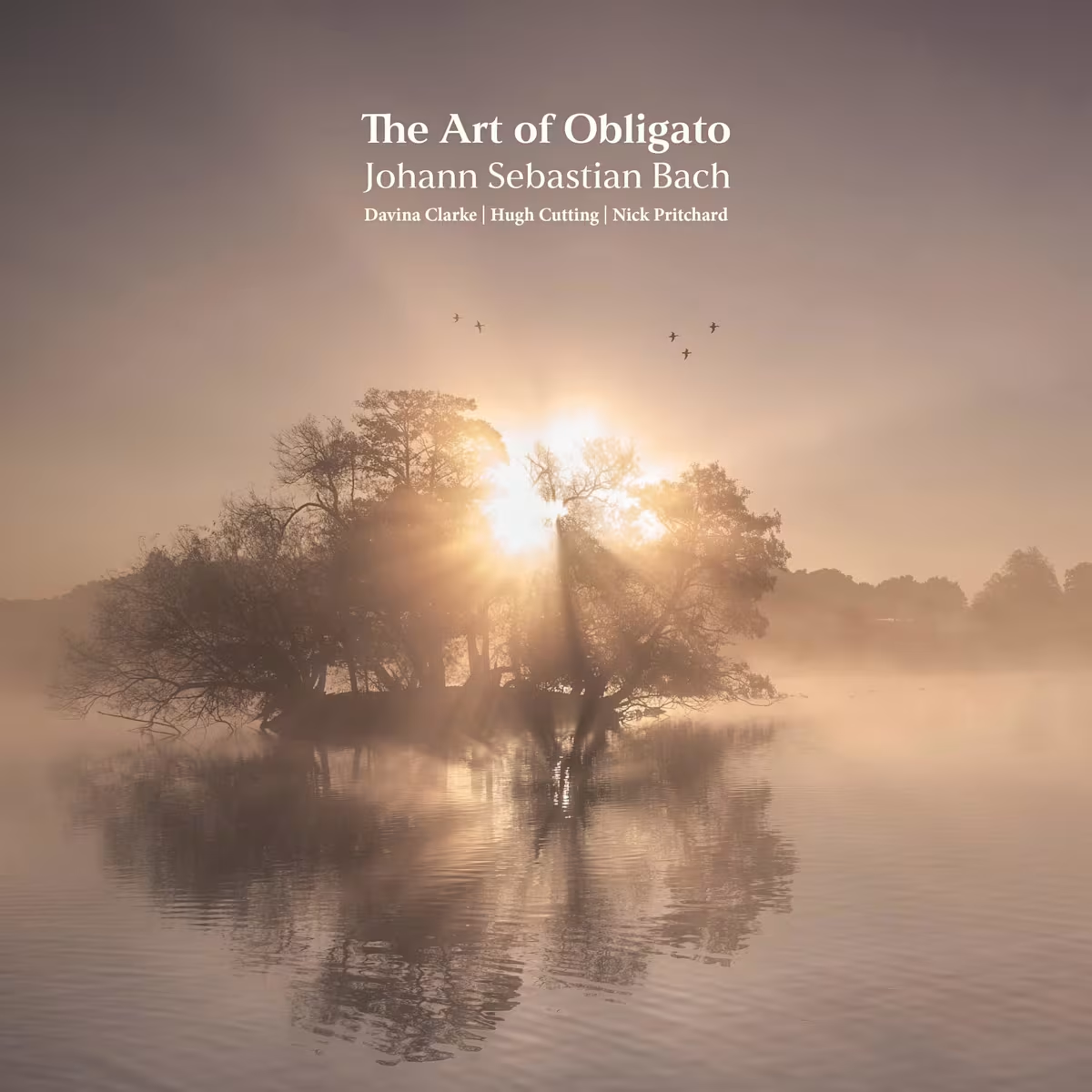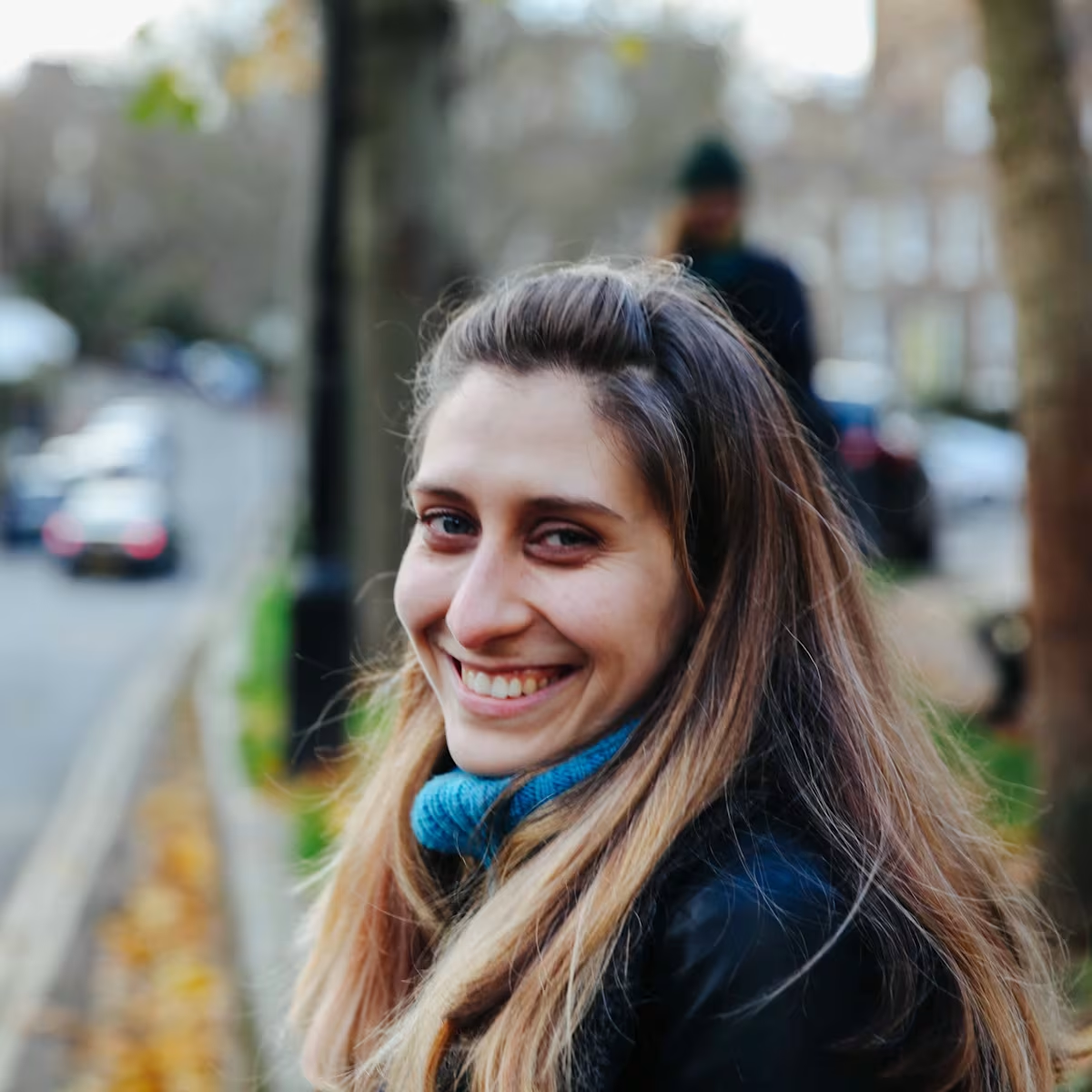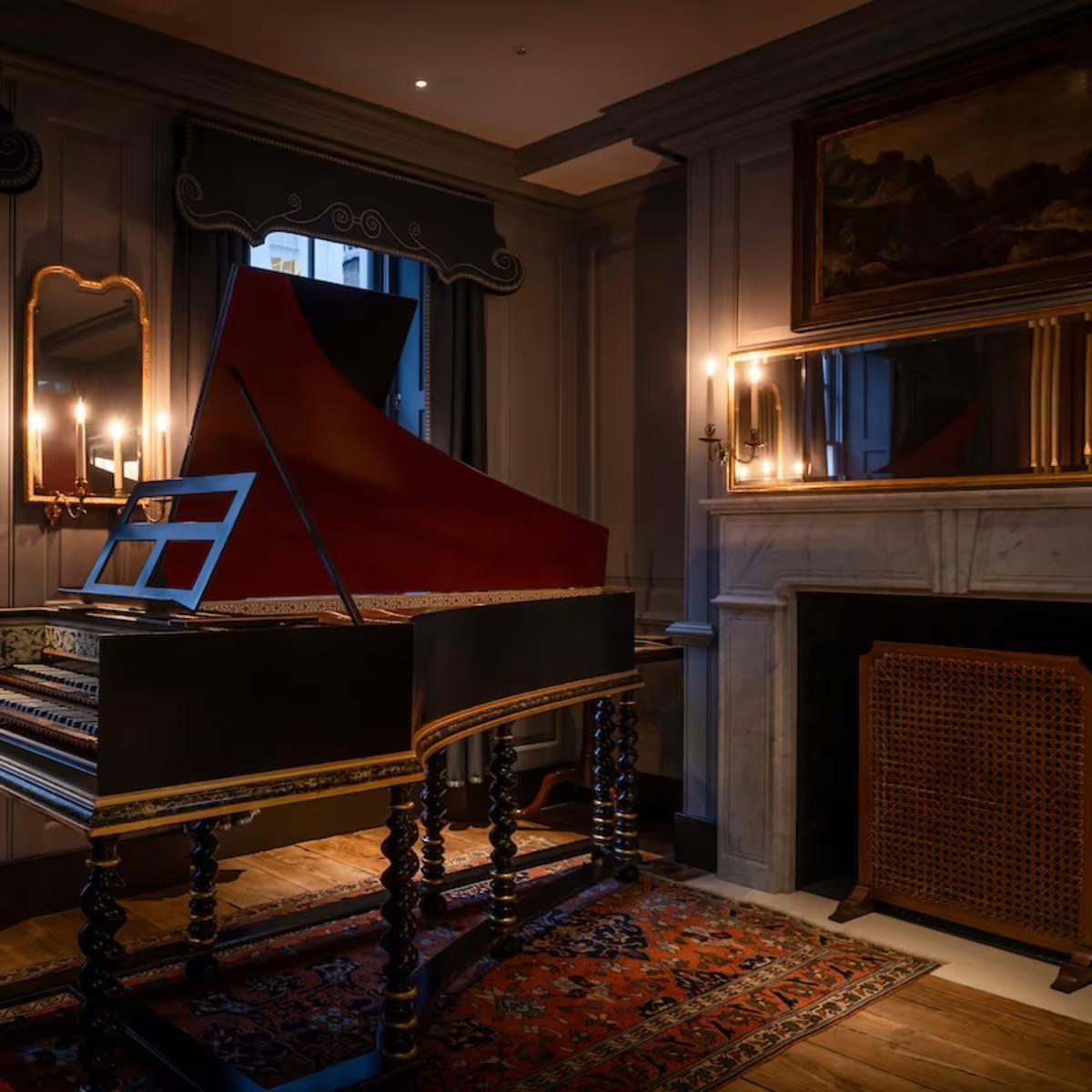Spotlight
In conversation: Oliver Doyle
Continuo Connect meets musicologist, harpsichordist and tenor Oliver Doyle
Share this

Oliver Doyle is a tenor, musicologist and harpsichordist. He studied music at Durham University and founded Musica Antica Rotherhithe in 2016 as a vehicle for the performance of 17th Century opera in a chamber setting. In 2020 he joined a team of researchers led by Dr Tim Shephard (University of Sheffield), setting out to read every book published in Italy in 1501, looking for references to music. His thesis is on music in lifestyle literature printed in Italy between 1480-1530. This research influenced Musica Antica Rotherhithe's most recent project: 'Il Gran Capitano della Morte'. Directed by Oliver, the programme presented a soundscape of Florence during the 15th-16th centuries.
What is your superpower / superhero ability?
I would say being a marketing manager, fundraiser, director, performer, writer, translator and stage manager in one, but I think a lot of musicians find themselves doing the same! It’s certainly a tough act to juggle, though I always end up prioritising marketing.
What non-musical hobbies or interests do you have?
I do a lot of walking with my partner and friends, visiting historical sites and museums here and abroad, but I also absolutely love translation. My Italian’s pretty good but over the course of my doctorate I had to read a lot of Latin, which I had to build from scratch. I never thought I’d bother learning more than a singer needs to pronounce it, but it’s been hugely rewarding.
What is it that you most dislike?
The UK’s housing situation. Musicians have always done a mixture of things to make ends meet, and there is absolutely nothing wrong with that – Jacopo Peri worked for a Florentine Guild as well as being a musician – but for any self-employed artist in a private rental, housing costs are utterly exorbitant, and the need to take on second or even third and fourth jobs stifles a lot of time for creativity and thought that could turn a good project into an incredible one.
How has classical music influenced your life outside of performing?
I talk about it way too much!

As founder of Musica Antica Rotherhithe, what do you enjoy most about your role, and how do you overcome any challenges?
I really enjoy the challenge of selling a programme which might be considered too obscure to attract an audience. I’ve certainly worked for wonderful companies which always felt the need to err on the side of caution with programming in order to attract an audience, rather than working out ways to make something different attractive, which can be frustrating. In the UK, programming is very Bach- and Handel-centric, and being able to run a group dedicated to doing anything but Bach and Handel (with some exceptions) is really fun.
Can you tell us more about your thesis on music in lifestyle literature in Italy 1480-1530? How does this intersect with your work as a performing musician?
Most musicians working in historical performance will have heard of Baldassare Castiglione’s Book of the Courtier. He writes a lot about music and conduct, and what constitutes a good musical performance, and also gives us the slightly enigmatic word sprezzatura, which Caccini also used and which is so important in all musical performance. What I wanted to see was what other texts in circulation during Castiglione’s lifetime had to say about music, and whether they contained information on musical performance beyond the relatively narrow, courtly world which Castiglione was writing about. In the process of writing it, I bookmarked a lot of material which will directly inform how we could perform music from this period, and which I’m hoping to present next year, but I find that even material which is only tangentially related to performance can be useful. People love stories, and the more you can situate music in the context of its period, the more relatable it becomes, and the more enjoyable for your audience.
Who is your favourite composer, and why?
This is a really difficult question! My research takes me earlier and earlier in time, and even though I find myself increasingly turning to music from around 1380-1450, I think my favourite composer is still Francesco Cavalli. For me, he sits at a point in the history of opera where you have really beautiful recitative punctuated by substantial, gorgeous laments. I’ve never been a fan of late baroque opera and oratorio, where you get a chain of da capo arias separated by (often) perfunctory recitative, and I find the freedom with which earlier opera moves in and out of recitative and aria much more expressive.
If you could meet anyone from the past, who would it be?
During my doctorate, one of the texts I read was a little book inscribed with ‘libor de cecila’ [libro de Cecilia]. It might have been a gift from a parent to their daughter and she’d used it to write some of her first thoughts. I know absolutely nothing about who she was, but coming into contact with something so everyday at a distance of 550 years was really haunting, and I find the idea of meeting someone we know nothing about, who could give us a window onto everyday life, really fascinating.
Would you like to put the spotlight on a teacher, a mentor or an ensemble that has had a significant influence on your journey so far, and why?
Tim Shephard at the University of Sheffield is a really brilliant scholar and teacher, and his enthusiasm for the art and music of fifteenth century Italy, finding inventive ways to diversify music curricula, and sharing that in an engaging way, is utterly infectious.
Describe a particularly challenging or rewarding moment in your musical journey.
Staging our first opera (with Musica Antica Rotherhithe) in 2018 was an incredible experience. We were asked by a local festival if we could do this, and we chose the anonymous comedy Lo Spedale (The Hospital) which Solomon’s Knot had staged for the first time in 350 years, working with Dr Naomi Matsumoto of Goldsmith’s University, who first discovered it. Solomon's Knot made a fantastic production which drew on similarities between failing healthcare in the 17th Century and the managed decline of our own NHS. We decided to take the piece right back to its commedia roots to perform a candlelit, historically informed staging, directed by the group as a whole in the way we think commedia performances were managed in the seventeenth century. We put in so much work that our fees probably averaged about £2.50 an hour, but it was very worthwhile, and we’ve performed it four times since. I can’t recommend it enough to conservatoires looking for a self-contained, ridiculous and yet beautiful work. If only we knew who wrote it!

Share this
Keep reading

The Art of Obligato
In The Art of Obligato, Davina Clarke explores Bach’s cantata arias with violin, joined by Nick Pritchard, Hugh Cutting, and a skilled continuo ensemble.

In conversation: Elitsa Bogdanova
Continuo Connect meets Elitsa Bogdanova, member of the Consone Quartet with a busy career as a freelance viola player.

Handel Hendrix House
Handel & Hendrix House cares for and presents the London homes of Baroque composer G.F. Handel and rock legend Jimi Hendrix.



